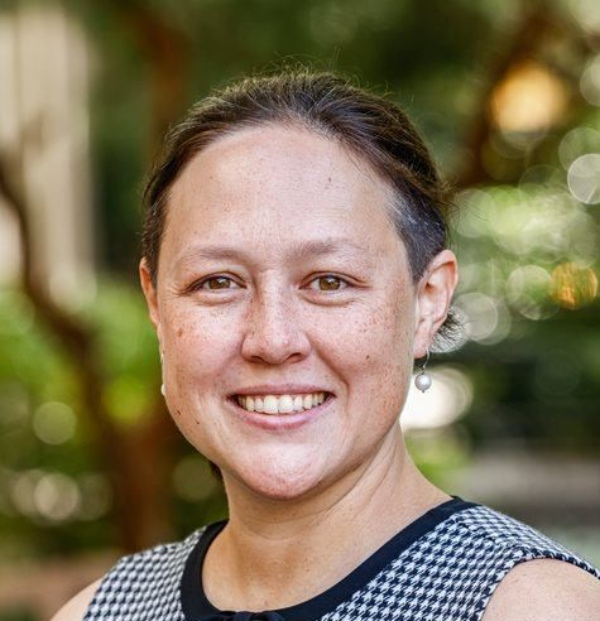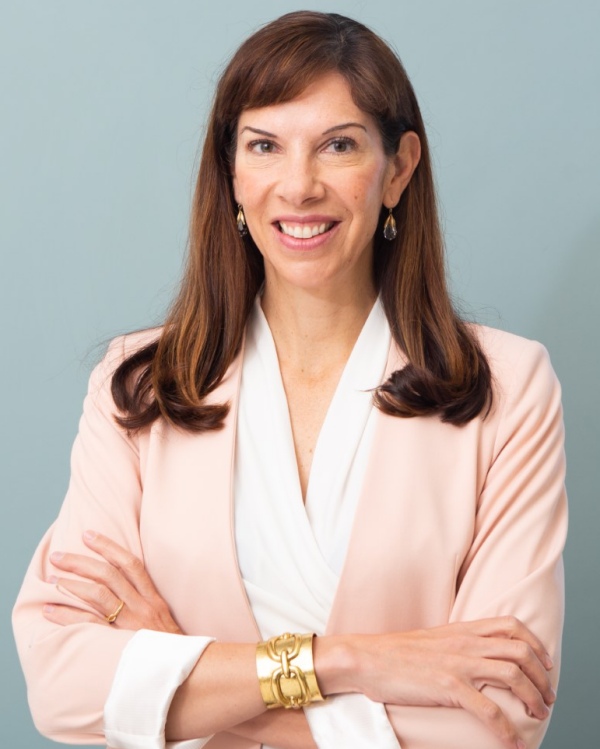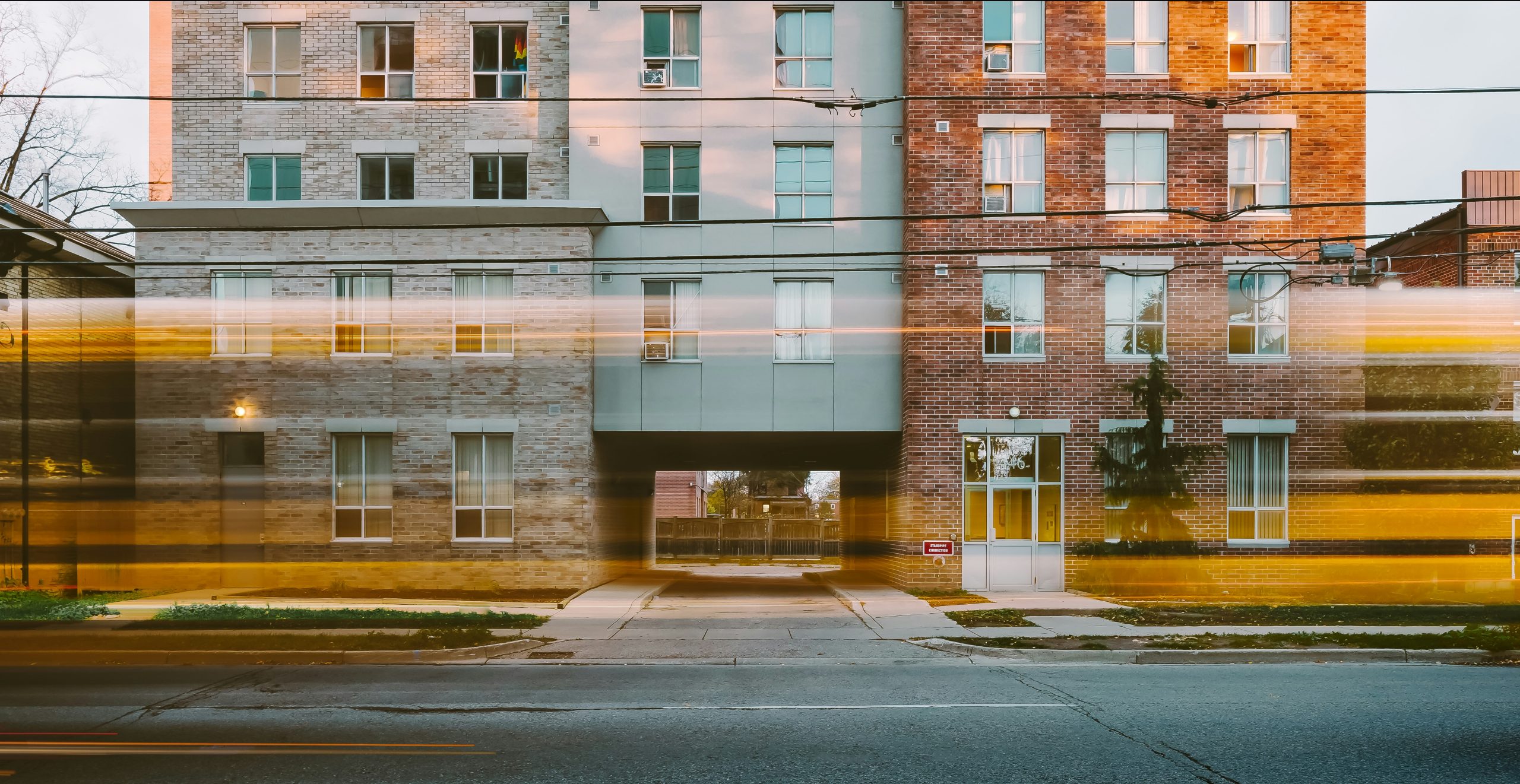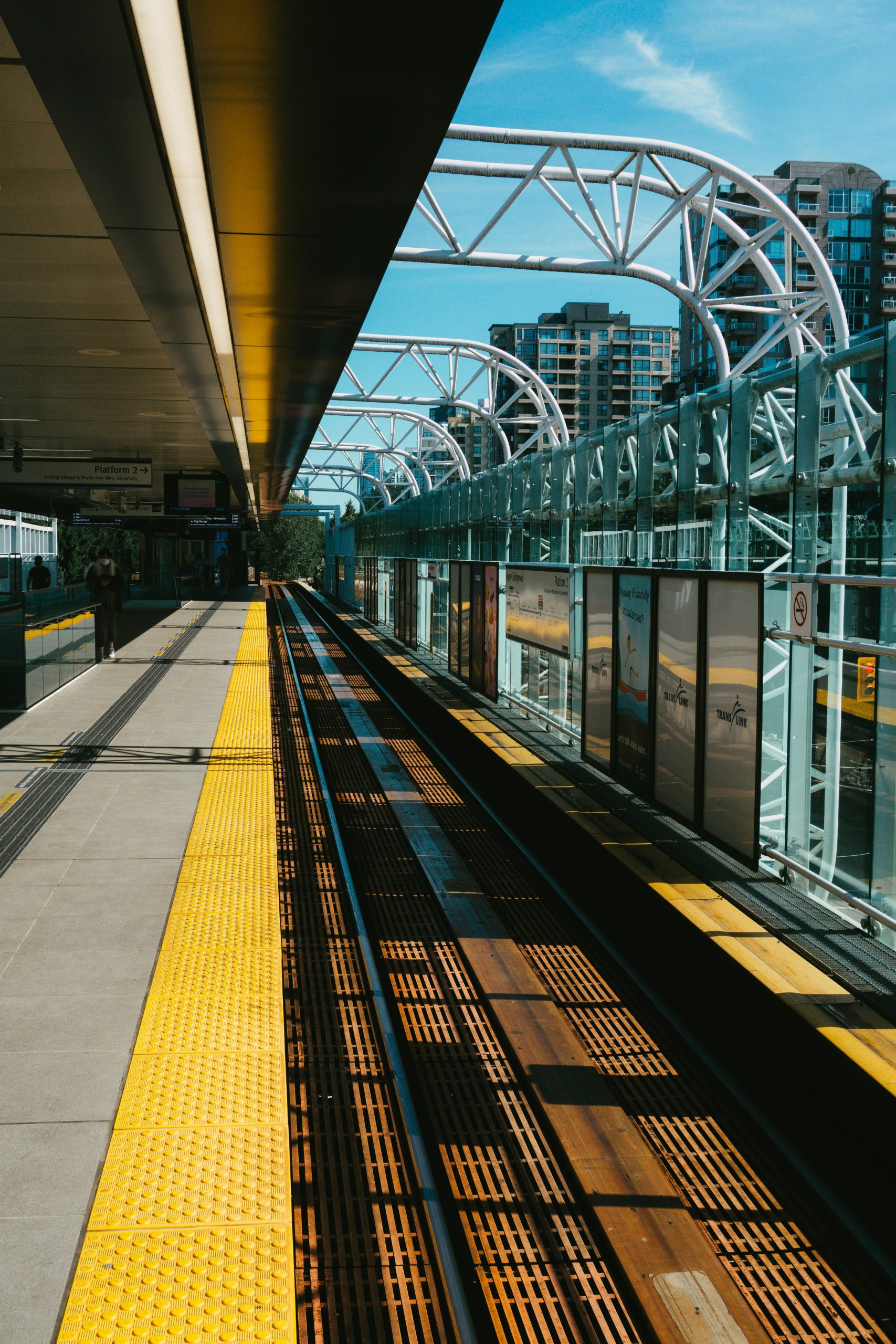Featured Guests
You’ll find this guest among our growing roll of Urban Champions.
-

Tracy H Loh
Researcher, Brookings Institute, Washington D.C.
-

Steve Paynter
Architect, Gensler
-

Melissa Román Burch
CEO, New York City Economic Development Corporation
-

Joe Nickerson
VP, Sidewalk Real Estate Development, Halifax
5 Key Takeaways
A roundup of the most compelling ideas, themes and quotes from this candid conversation
1. Making the case for conversions
Pandemic-induced shifts to remote and hybrid work combined with high office vacancies and an office building stock reaching obsolescence present an opportunity to rethink the role of Canada’s downtowns and central business districts. CUI’s eleven-month inquiry into downtown office to residential conversions resulted in an analysis of the types of office buildings suitable for adaptive reuse, the market conditions that make them feasible, the policy and regulatory levers available to support them, and the scale of the opportunity across the country. See our report, The Case for Conversions, which focuses on the downtowns of six case cities: Victoria, Regina, Winnipeg, Ottawa, Moncton, and Halifax.
2. Identifying the right building candidates.
Steven Paynter and the team at Gensler Architecture and Design use a data-rich approach to identify “Goldilocks” buildings. After analyzing over 800 buildings, Steven says, “about 30 percent of the buildings we’ve studied make great conversion candidates that lay out beautifully for residential units that really can add a lot of diversity to your mix of use to a downtown.” CUI partnered with Gensler to analyze office buildings in the downtowns of the six case cities and identify suitable candidates for conversion.
3. More vibrant downtowns.
Melissa Román Burch of the New York City Economic Development Corporation believes that conversions in tandem with public realm improvements will strengthen monocultural business districts by helping them evolve into 24/7 social districts where you can live, work, learn, and play. According to Steven Paynter, by providing opportunities for people to live near their jobs you can reduce commuting times and the strain on public transit, as well as reuse parts of the downtown and existing infrastructure to accommodate activity beyond the 9 to 5 work week.
4. “Cities need to think about how to create flexible built environments”.
Tracey Hadden Loh, Fellow at the Brooking Institute, says that we must enhance our ability to respond, “in a world where the pace of change is faster than ever, and crises are piling up.” Downtown conversions are just one piece of a larger policy conversation around being able to do more with the assets we already have in all types of communities. We must also understand the role policies around office to residential conversion will have in either reducing or increasing inequality.
5. Proper use of financial incentives
There was agreement among the panel that financial incentives shouldn’t be used to buy office buildings. According to Melissa and Steven, the role of public money in office conversions should be to catalyze private investment or create momentum that wouldn’t be achieved without intervention. Joe Nickerson, partner at Sidewalk Real Estate Development in Halifax, says, “You could give me $5 million today. I prefer the property tax credit that I can model over time that impacts the value of my building. The reality is that if you throw those carrots out with less strings attached … people will be creative, and they’ll find opportunities and they’ll act faster.”
Full Panel
Transcript
Note to readers: This video session was transcribed using auto-transcribing software. Questions or concerns with the transcription can be directed to events@canurb.org with “transcription” in the subject line.
Full Audience
Chatroom Transcript
Note to reader: Chat comments have been edited for ease of readability. The text has not been edited for spelling or grammar. For questions or concerns, please contact events@canurb.org with “Chat Comments” in the subject line
11:58:50 From Emilie Charlebois (CUI) to Everyone:
Welcome everyone! We invite you to say hello in the chat before we get started. Tell us where you’re watching from!
11:59:19 From Emilie Charlebois (CUI) to Everyone:
Please change your chat settings to “Everyone” so that everyone can read your comments.
11:59:52 From Andrew McCreight to Everyone:
Hi all. City of Ottawa.
12:00:00 From Emilie Charlebois (CUI) to Everyone:
Share your thoughts on social media! @canurb #citytalk
12:00:12 From Mayja Embleton to Everyone:
Mayja from the City of Edmonton
12:00:19 From Larissa Stefurak to Everyone:
Hello, from Toronto – Thanks CUI for arranging informative talks
12:00:37 From Sharon Livingstone to Everyone:
Sharon Cabridge
12:00:40 From Rhiannon Hayes to Everyone:
Hello from Winnipeg!
12:00:47 From Mayja Embleton to Everyone:
Great music choice!
12:00:56 From Tim Wiens to Everyone:
Afternoon everyone from Guelph Ontario!
12:01:07 From Luisa Trevisan to Everyone:
Hello from Calgary!
12:01:17 From Erica Sangster to Everyone:
Hello from Victoria!
12:01:23 From Sadie Gilker to Everyone:
Hello! Sadie calling in from Musqueam, Squamish and Tsleil-Waututh territory (Vancouver)
12:01:26 From Beate Bowron to Everyone:
Hello from downtown Toronto
12:01:26 From Deb Moore to Everyone:
Greetings and good morning from Victoria, BC
12:01:35 From Cathy Crowe to Everyone:
Hi from Toronto.
12:01:44 From Judith Norris to Everyone:
Hello from Toronto! I agree great music choice.
12:01:55 From Lorraine Hopkins to Everyone:
Hello from Tkaronto!
12:02:16 From Emilie Charlebois (CUI) to Everyone:
We are recording today’s session and will share it online at canurb.org/citytalk-canada/
12:02:23 From Emilie Charlebois (CUI) to Everyone:
We have closed captioning enabled for today’s session. If you would like to turn it off, please click on the button at the bottom of your screen and disable.
12:02:41 From Emilie Charlebois (CUI) to Everyone:
We hope this session is as interactive as possible, so please feel free to share comments, references, links or questions in the chat
12:02:52 From Emilie Charlebois (CUI) to Everyone:
Please change your chat settings to “Everyone” so that everyone can read your comments.
12:03:05 From Emilie Charlebois (CUI) to Everyone:
Do you have specific questions for the panellists? Post them in the chat, and we’ll try to answer as many as possible.
12:03:19 From Emilie Charlebois (CUI) to Everyone:
Responses to questions and additional resources will be provided in the chat by CUI staff.
12:04:18 From Sueling Ching to Everyone:
Ottawa
12:04:26 From Matt Pelletier to Everyone:
Hello from Charlottetown
12:04:36 From Jean-Marc Nadeau to Everyone:
Good day…I’m joining you from SUMA in Regina, SK.
12:04:36 From Matt Grady to Everyone:
Vancouver
12:04:42 From Shawn Persaud to Everyone:
Vaughan
12:04:49 From David Caballero to Everyone:
Mexico City
12:04:50 From Reg Nalezyty to Everyone:
Thunder Bay
12:04:50 From Darcy MacDonald to Everyone:
Antigonish, NS
12:04:51 From Karol Murillo to Everyone:
Hello from Hamilton
12:04:51 From Judy Lam to Everyone:
Hi from Hamilton!
12:04:58 From Michelle Groulx to Everyone:
Hi from Ottawa!
12:05:06 From Greg Newman to Everyone:
Delta, BC
12:05:19 From Elizabeth Cushing to Everyone:
Halifax NS
12:05:34 From Lorna Stewart to Everyone:
Greetings from sunny Victoria, BC.
12:05:40 From Andrea Betty to Everyone:
Penetanguishene Ontario!
12:06:03 From David Scrivener to Everyone:
You can read the report’s Mary referenced on our website.
12:06:10 From David Scrivener to Everyone:
Case for Conversions: https://canurb.org/publications/the-case-for-conversions/
12:06:10 From Emilie Charlebois (CUI) to Everyone:
Jennifer Barrett, Managing Director, Canadian Urban Institute
12:06:16 From Michael DelGiudice to Everyone:
Greetings from Miami!
12:06:24 From Derrick Holman to Everyone:
Hello from New York.
12:06:24 From Emilie Charlebois (CUI) to Everyone:
Jennifer oversees the Bring Back Main Street and Restore the Core initiatives and leads CUI’s Applied Solutions Lab, which undertakes research, engagement, partnerships and creative problem solving to shape public policy, implement best practices and help public and private sector leaders build capacity and identify solutions. Jennifer’s diverse experience in the U.S. and Canada has focused on improving social, environmental and economic sustainability.
12:06:25 From Patrick Robson to Everyone:
Hello from Niagara
12:06:41 From Emilie Charlebois (CUI) to Everyone:
Jennifer has worked in the public, private and non-profit sectors including affordable housing, land use planning, social development policy, and economic development. She has served as a municipal representative for the federal Homelessness Partnering Strategy and the Canadian Municipal Network on Crime Prevention, and as a participating member of the Canadian Institute of Planner’s New Urban Agenda Committee. She is a Registered Professional Planner and holds a Master’s degree in Urban Planning from McGill University.
12:07:02 From Mark Roseland to Everyone:
Greetings from Phoenix AZ and Vancouver BC
12:07:05 From David Scrivener to Everyone:
Case for the Core (from 2021): https://canurb.org/publications/case-for-the-core/
12:07:24 From W Scotte MacQueen to Everyone:
Gensler DC here!
12:10:10 From David Scrivener (CUI) to Everyone:
Reposting the two reports for those who missed them:
Case for Conversions (2023): https://canurb.org/publications/the-case-for-conversions/
Case for the Core (from 2021): https://canurb.org/publications/case-for-the-core/
12:12:37 From Aundre Oldacre to Everyone:
Sustainable developers in NYC
12:12:46 From Emilie Charlebois (CUI) to Everyone:
If you have any questions you would like us to follow up on, please send to cui@canurb.org
12:12:50 From Tim Wiens to Everyone:
SLR Consulting Ltd. Here – Acoustics Design at your service!
12:13:05 From Andrew Browning to Everyone:
What is a “healthy” office vacancy rate? Landlords would perhaps say 5%, tenants might say 15% (lots of choice and downward pressure on rents).
12:13:14 From Emilie Charlebois (CUI) to Everyone:
Steven Paynter – OAA, ARB – Principal, Gensler Toronto
12:13:28 From Emilie Charlebois (CUI) to Everyone:
Steven Paynter is a Studio Director and Principal at the Toronto branch of Gensler, the global design and architecture firm with 53 locations around the world, including in the Americas, Europe, Asia Pacific, and the Middle East. He is widely recognized as an industry leader and an invaluable resource for market expertise to developers, landlords, and tenants alike. Steven is frequently called on to provide thought leadership on topics such as unlocking the value of Class B & C buildings by converting them to residential, shaping the future of cities, the urbanization of suburbia, and design of post-pandemic office buildings.
12:13:30 From Jennifer Barrett (CUI) to Everyone:
We considered 10% to be a healthy vacancy.
12:13:41 From Emilie Charlebois (CUI) to Everyone:
Engaged in original research, he has led the development of a tool for rapid assessment of existing office building stock for ESG performance. Steven was nominated by Business Insider as one of their Top 100 People Transforming Business in 2022, and his work and leadership have been featured in publications such as the Globe and Mail, Calgary Herald, BBC, South China Morning Post, RTE and Architectural Record.
12:13:56 From Emilie Charlebois (CUI) to Everyone:
@gensler_design
12:14:02 From Emilie Charlebois (CUI) to Everyone:
https://www.gensler.com/
12:14:29 From Toby Greenbaum to Everyone:
Hello from Ottawa
12:16:10 From Emilie Charlebois (CUI) to Everyone:
Joe Nickerson – Vice President & Partner, Sidewalk Real Estate Development (Halifax)
12:16:12 From Emilie Charlebois (CUI) to Everyone:
Joe Nickerson is the Vice President of Sidewalk Real Estate Development (R.E.D), a Halifax-based firm which takes an unconventional approach by valuing sustainability and the curation of thriving neighbourhoods. He is a leader with a proven history of success managing a variety of real estate portfolios for high-net-worth families in Toronto, Alberta, and British Columbia. Joe has worked at RBC Capital Markets and for both private and public real estate holding companies ranging from $100M to $11B in AUM. Joe holds an MBA with a specialization in Real Estate & Infrastructure from Schulich School of Business and studied Private Equity & Finance at SDA Bocconi University in Milan, Italy.
12:16:17 From Emilie Charlebois (CUI) to Everyone:
https://sidewalkred.ca/
12:17:01 From Emilie Charlebois (CUI) to Everyone:
Welcome new joiners! Just a reminder to please change your chat settings to “everyone” so we can all see your comments.
12:17:07 From Emilie Charlebois (CUI) to Everyone:
Share your thoughts on social media! @canurb #citytalk
12:17:40 From Beate Bowron to Everyone:
Toronto had a conversion project of class C office buildings about 20 years ago. Mixed use development was as-of-right in the downtown , except the Financial Core. Dedicated approval resources are key. It was very successful, but, obviously it’s time to consider this again.
12:20:10 From Emilie Charlebois (CUI) to Everyone:
Melissa Román Burch – Executive Vice President and COO, Economic Development Corporation (New York, NY)
12:20:14 From Emilie Charlebois (CUI) to Everyone:
Melissa Román Burch is NYCEDC’s Chief Operating Officer and leads the Real Estate Transaction Services and Asset Management divisions. As COO, she oversees public/private developments involving City-owned property, and manages NYCEDC’s portfolio of 200+ unique and iconic assets spanning 64 million square feet, composed of commercial and industrial real estate, critical infrastructure, and energy assets. Melissa joined NYCEDC in April 2022 after two decades as a leading property executive and developer of large-scale, mixed-use projects distinguished by investments in transportation infrastructure, environmental leadership, and innovative partnerships. Prior to NYCEDC, Melissa served as Executive General Manager for Lendlease, where she initiated and led all acquisition and development activities for the NY region. Melissa was previously Executive Vice President for Forest City Ratner, where she oversaw the development of Pacific Park Brooklyn.
12:20:22 From Emilie Charlebois (CUI) to Everyone:
https://edc.nyc/
12:20:27 From Emilie Charlebois (CUI) to Everyone:
@NYCEDC
12:25:38 From David Scrivener (CUI) to Everyone:
Here’s the New New York report that Melissa referenced: https://edc.nyc/sites/default/files/2023-02/New-NY-Action-Plan_Making_New_York_Work_for_Everyone.pdf
12:26:32 From Emilie Charlebois (CUI) to Everyone:
Tracy Hadden Loh – Fellow at Brookings Metro, Anne T. and Robert M. Bass Center for Transformative Placemaking (Washington D.C.)
12:26:34 From Emilie Charlebois (CUI) to Everyone:
Tracy Hadden Loh is a Fellow with the Anne T. and Robert M. Bass Center for Transformative Placemaking at the Brookings Institution (Brookings Metro), where she integrates her interests in commercial real estate, infrastructure, racial justice, and governance. She recently co-authored Myths about converting offices into housing—and what can really revitalize downtowns (brookings.edu), which details the extent to which office conversions should be supported for downtown revitalization. She serves on the boards of the Washington Metropolitan Area Transit Authority and Greater Washington. Her most recent writing includes two co-authored chapters in Hyperlocal: Place Governance in a Fragmented World. She also previously served two years on the city council of Mount Rainier, a small town in Prince George’s County, Maryland.
12:26:44 From Emilie Charlebois (CUI) to Everyone:
@lohplaces
12:26:47 From Emilie Charlebois (CUI) to Everyone:
@BrookingsMetro
12:26:55 From Emilie Charlebois (CUI) to Everyone:
https://www.brookings.edu/program/brookings-metro/
12:27:43 From David Scrivener (CUI) to Everyone:
Previously, Joe mentioned a project he’s working on in Halifax. You can read more here: https://sidewalkred.ca/projects/centennial/
12:28:50 From David Scrivener (CUI) to Everyone:
Here’s the report Tracy is talking about from her work at Brookings: https://www.brookings.edu/research/myths-about-converting-offices-into-housing-and-what-can-really-revitalize-downtowns/
12:29:34 From Karol Murillo to Everyone:
Good point:)
12:32:47 From Toby Greenbaum to Everyone:
How does one define the “public interest”?
12:34:54 From Mary-Ann Thurber to Everyone:
What about infrastructure around converted buildings? In order to attract families, should developers think about parks, play areas, etc., or does that add too much cost?
12:36:01 From Emilie Charlebois (CUI) to Everyone:
As always on CityTalk the chat is vibrant and active. Amplify the conversation and share your thoughts #CityTalk @canurb
12:36:22 From Jennifer Barrett (CUI) to Everyone:
@Mary-Ann Thurber. Yes, certainly the analysis should include location to understand what amenities exist to support residents and what would be needed to support new residential uses. Fortunately, many downtowns have infrastructure like transit, libraries, etc.
12:37:16 From Karol Murillo to Everyone:
Are you seeing conversions for families (i.e. more than 1.5 bedroom units)?
12:37:48 From Roberta Sager to Everyone:
Great discussion! In addition to civic/public spaces and amenities..any thoughts on the impacts of servicing infrastructure (water, wastewater, utilities etc.) when converting?
12:38:33 From Dianne Himbeault to Everyone:
How much of an issue are building codes and municipal plan examiners not knowing how to approve the conversion work, even in cities where policies are very permissive
12:41:25 From Jennifer Barrett (CUI) to Everyone:
@dianne Himbeault. Our work includes an evaluation of Building Code challenges. Commercial vs. residential do have different regulatory needs that need to be figured out especially exits. The second challenge is that building codes tend to be focused on new construction. Provincial codes that include sections for existing buildings and help apply the transition to residential. You can learn more in the supportive docs of our report: https://canurb.org/wp-content/uploads/Building-Code-Final-Report-2023-02-21.pdf
12:42:24 From Dianne Himbeault to Everyone:
TY
12:43:42 From Jennifer Barrett (CUI) to Everyone:
@karol Murillo. There are examples of larger units and congregate living such as supportive housing or student residents. It really depends on the configuration of the building.
12:43:51 From Kieron Hunt to Everyone:
Kieron here in Halifax and our firm, FBM is currently on the ground floor of the building that Sidewalk is converting from Office to Residential. It’s great to see and “hear” their progress in working towards creating a more lively downtown with full time body heat in an increasingly walkable and cyclable downtown Halifax. The key to conversions is to keep the street frontage and edges for retail animation and opportunities
12:45:05 From Matt Pelletier to Everyone:
In cities with a large federal government footprint (e.g., Ottawa and provincial capitals), should individual cities be engaging with PSPC to get more properties slated for conversion? The recent agreement with the union puts a wrench in the federal plans to end remote work, so that could create an opportunity to push for the federal government to scale down its office property portfolio.
12:45:41 From Lori Tesolin to Everyone:
In addition to housing, what about other industries that may want to have flex/collaborative space in downtowns? The creative/arts community has been doing this for decades in old industrial buildings after the manufacturing sector restructured globally.
12:46:38 From Rory McNeil to Everyone:
Building on Lori’s question, has there been any consideration of alternative non-residential uses that office space could be repurposed for? The concern being that if and when the office market returns, spaces converted to residential are never coming back but alternate uses could provide more flexibility.
12:47:59 From Jennifer Barrett (CUI) to Everyone:
@Rory McNeil. We’ve seen some institutional uses. NYC is focused on some necessary amenities such as childcare for some floors.
12:48:07 From Ashok Prasad to Everyone:
The balance of units that allow for longer term ownership (accommodate families) and smaller units for transitional users is critical to the success of a development. This makes buildings financially viable and there are users that have a vested interest in the health of the local community.
12:49:46 From Andrew Browning to Everyone:
These older Class B/C buildings are the cheapest office space for users. Don’t want to solve one issue (high vacancy) and create another (office rent affordability) – especially important for smaller businesses and start-ups.
12:49:55 From Cathy Crowe to Everyone:
What is federal role in Canada? RHI $$$ during COVID helped to finance some repurposing (albeit they weren’t office buildings).
12:53:19 From Steven Paynter to Everyone:
Yes – overbuilds are happening for sure
12:53:30 From Steven Paynter to Everyone:
We’re doing a 49 storey overbuild in Toronto
12:53:34 From Emilie Charlebois (CUI) to Everyone:
We love your comments and questions in the chat! Share them with everyone by changing your chat settings to “everyone”. Thanks!
12:54:20 From Rory McNeil to Everyone:
Often an older existing office building will not be at the maximum heights or densities that more recent municipal policy allows for. Have you found that this has been the case in the example cities? Why would a developer – or a municipality trying to acquire affordable housing do conversion rather than demolition and rebuild at a higher height and density?
12:55:08 From W Scotte MacQueen to Everyone:
Not to mention the carbon accountability shift and demand for more efficient buildings.
12:55:42 From mary shaughnessy to Everyone:
Housing for homeless people would be helpful, but NOT all of them living together in the same building (which evidence shows does not work as well as scattered housing).
12:56:03 From Jim Yanchula to Everyone:
Hey Canadians, many of the matters you are chatting about are to be addressed in the City of London (Ontario) Core Area Land & Building Vacancy Reduction Strategy scheduled to be tabled for our Municipal Council’s review at the end of this month.
12:56:38 From Emilie Charlebois (CUI) to Everyone:
The conversation can move fast and we may not have been able to address everything in the chat. If you have any questions you would like us to follow up on, please send to cui@canurb.org
12:56:39 From Karol Murillo to Everyone:
Hi Jim, can you send the link on the chat?
12:56:48 From Emilie Charlebois (CUI) to Everyone:
Keep the conversation going #CityTalk @canurb
12:56:53 From Mary-Ann Thurber to Everyone:
One of the issues we face in Edmonton, and I’m sure other cities, is the fear of crime downtown. That makes it difficult to attract people to live downtown
12:57:13 From Paul Musembwa to Everyone:
Please do this again ASAP. We need to hear each of the panelists speak at length
12:57:14 From Kieron Hunt to Everyone:
long before this renewed conversion trend started, Simon Fraser University was ahead of the times by creating downtown campus in vacant office and old shopping centre space in the early 90s in the heart of Downtown Vancouver. This campus has been immensely successful
12:57:21 From ben Diraimo to Everyone:
Excellent discussion!!
12:57:27 From Darcy MacDonald to Everyone:
What a great interesting discussion, big thanks to the speakers and Mary for coordinating.
12:57:38 From Washington Fajardo to Everyone:
https://www.archdaily.com/893553/sesc-24-de-maio-paulo-mendes-da-rocha-plus-mmbb-arquitetos?ad_source=search&ad_medium=projects_tab
12:57:40 From Canadian Urban Institute to Everyone:
Karol, in response to your question about Jims comment: https://getinvolved.london.ca/corearea
12:57:43 From Jennifer Barrett (CUI) to Everyone:
@Rory McNeil, One of the major incentives or triggers for building conversions/retrofit is that the embodied carbon in existing buildings that can take decades to make up for in a time when reduction of GHG is needed. There are also opportunities to build up from existing buildings.
12:58:01 From Emilie Charlebois (CUI) to Everyone:
COMING UP: Next City Talk will be on May 31st at 12:00pm EDT: How can we work together on the mental health crisis in our downtowns? Stay tuned for more details by signing up for our newsletter https://canurb.org/subscribe/ or following us @canurb
12:58:17 From Elena Bird to Everyone:
Great talk. Thank you!
12:58:18 From Alana MacKinnon to Everyone:
Thank you, such a great panel and really insightful conversation!
12:58:19 From Karol Murillo to Everyone:
Would love to see Tracy’s examples where the mix is happening? Podium are housing etc.
12:58:21 From Emilie Charlebois (CUI) to Everyone:
Canada Healthy Communities Initiative Mobilizer Session: Register now for Building the Case for Placemaking: What is it and Why Does it Matter? happening on Thursday, May 18, 2023 @ 10:00am PT / 1:00pm ET. This 75-minute session, hosted by Mitchell Reardon from Happy Cities and Mary Rowe from CUI City Talks, delves into the well-being impacts of cultivating spaces for public engagement and asks: What are we learning from our experiences over the past three years? Is there a super-power in community-driven change? How can we continue to build support for these incredible efforts?
12:58:24 From Emilie Charlebois (CUI) to Everyone:
Join us next Thursday for this free public webinar! Register here: https://bit.ly/42CHn8V
12:58:28 From Lorraine Hopkins to Everyone:
As someone working in Canada’s affordable housing space (at Evergreen), and I’m based in Toronto, this has been a fabulous talk, thank-you!
12:58:33 From Steven Paynter to Everyone:
normally it’ 50 yrs to “make up” the embodied carbon. On average the buildings we’ve studied account for 2 million kgCO2/e
12:58:48 From Toby Greenbaum to Everyone:
;l’;
12:58:50 From Toby Greenbaum to Everyone:
‘;l
12:59:01 From Karol Murillo to Everyone:
Thank you…fantastic panel!
12:59:05 From Emilie Charlebois (CUI) to Everyone:
Thank you for joining us! We have recorded today’s session and will share it online within a week at canurb.org/citytalk-canada/
12:59:22 From Steven Paynter to Everyone:
If anyone has follow up questions please reach out steven_paynter@gensler.com
12:59:29 From Jacquelyn West to Everyone:
Appreciating the energy and participation to bring this conversation forward, thank you Mary and esteemed panel!
12:59:39 From Jennifer Barrett (CUI) to Everyone:
@karol Murillo. Sidewalk’s building at 1660 Hollis Avenue in Halifax is a mixed-use building. There are other examples in Ottawa, Winnipeg, Regina.
12:59:49 From Washington Fajardo to Everyone:
It’s also possible to add a new layer of “natural” landscape at the rooftop of existing buildings
12:59:58 From Mary-Ann Thurber to Everyone:
Edmonton has mixed use buildings as well
13:00:15 From Barbara Maly to Everyone:
Thanks great discussion!!
13:00:21 From KATRIEN DARLING to Everyone:
Insightful discussions…thank you panelists
13:00:25 From Eva Ing to Everyone:
Thank you for the fantastic conversation !
13:00:26 From Daniel Bernstein to Everyone:
Thank you! Very informative. From NYC.
13:00:49 From Elizabeth Cushing to Everyone:
Thank you, great discussion!



